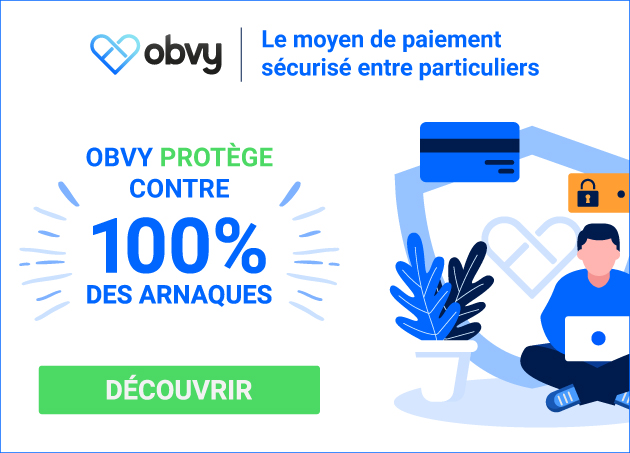Counterfeit bank cheque scam: how can you protect yourself?
Despite its good reputation, fake bank cheque scams do exist. Issued by the buyer's bank in person, it is often considered the safest way to pay large sums of money between private individuals, especially when buying vehicles, works of art, collectors' items or designer objects. Sellers often think that this is the most secure way of getting paid large sums... Unfortunately, they are wrong.
Official documents are always trustworthy, and we are all equal on this point. But today's crooks have advanced printing and fraud tools at their disposal, and networks, more or less organised, are doing their utmost to set up credible scams using media that are truer than life. You might think that the famous bank cheque would be spared, given its official status, but this is not the case.
Since 2010, there has been a steady increase in the number of counterfeit bank cheque scams, most often involving vehicle transactions between private individuals.
Find out how to protect yourself in less than 3 minutes by watching our video on the fake bank cheque scam:
Want to find out more? Read the full article below
A quick and effective scam
The method is simple. First of all, the would-be buyer will gain your trust by putting himself in the position of a good payer, by alerting you to the number of scams and therefore his choice, to make everyone feel safer, to pay by cashier's cheque. The seller appreciates the gesture, and already lifts some of his natural mistrust of the potential buyer. Some even go so far as to present identity papers or proof of address to prove their good faith. Of course, most of these documents are forgeries.
Over the course of the discussions, the buyer and seller agree on the price, as well as the place and date of the meeting to finalise the transaction. On the spot, the buyer will do everything necessary to ensure that the transaction is finalised as quickly as possible, and some will not even bother to try out the object or vehicle! Once the paperwork has been completed and the bank cheque handed over, buyer and seller part company, and things get complicated.
A forged bank cheque is virtually undetectable
The scammer will use a reproduction of a genuine stolen traditional cheque to hijack it and transform it into a bank cheque. This method guarantees the swindler a minimum of distrust on the part of the seller, since a valid bank cheque is a guarantee that the money is available for the transaction.
Some networks go even further, for example by setting up fake switchboards that pick up the phone and give advice when you call the number on the fake bank cheque!
Some forgeries are so sophisticated that not even a banker can tell the difference between them and a genuine bank cheque. The scam will only be detected when the cheque is cashed, giving the fraudster plenty of time to disappear into thin air.
A payment funded... then withdrawn
A cashier's cheque hardly ever arouses suspicion, even from bankers. When the seller takes the proceeds of his sale to his bank, it will be treated like any other cashier's cheque, and the funds will almost certainly be held in the seller's bank account... until the cheque is reported stolen or bounced.
A banker points out that "it is not the responsibility of the bank of the beneficiary of a cheque to check that the cheque is funded, but that this verification is the responsibility of the customer when he accepts the cheque in payment". The bank is therefore not liable, as this was a case of fraud rather than swindling.
The trap therefore closes on the seller who, at that moment, can lose everything. Of course, it turns out that by the time the scam is detected and the authorities realise that the name on the chequebook refers to a person whose chequebook has been stolen, the swindler has had time to disappear into thin air. This is the same method used for cheque scams between individuals.
Register now on Obvy and get £5 free with the code STOPARNAQUE
Opt for a more secure payment solution than bank cheques
Although bank cheques are extremely reliable, they can be easily falsified, and many forgeries are in circulation. So it's vital to be extremely vigilant when making sales, especially when large sums are involved!
With this in mind, we have developed Obvy, a payment method specially designed for purchases and sales between private individuals, which acts as a trusted third party by blocking the sale money before the transaction is finalised to ensure that the funds are actually available and to avoid any risk of private individuals being scammed. It's the digital alternative to a bank cheque, guaranteeing the solvency of your buyer while providing total security for each of the parties involved in a secure transaction between private individuals.
The higher the amounts involved, the more sophisticated the schemes devised by the fraudsters. The majority of private individuals (but also professionals) are not equipped to detect these scams, so it is essential to use a secure means of payment between private individuals, capable of providing the necessary assurances. Think about this the next time you buy or sell a property on Leboncoin, Facebook or any other classified ad platform.

